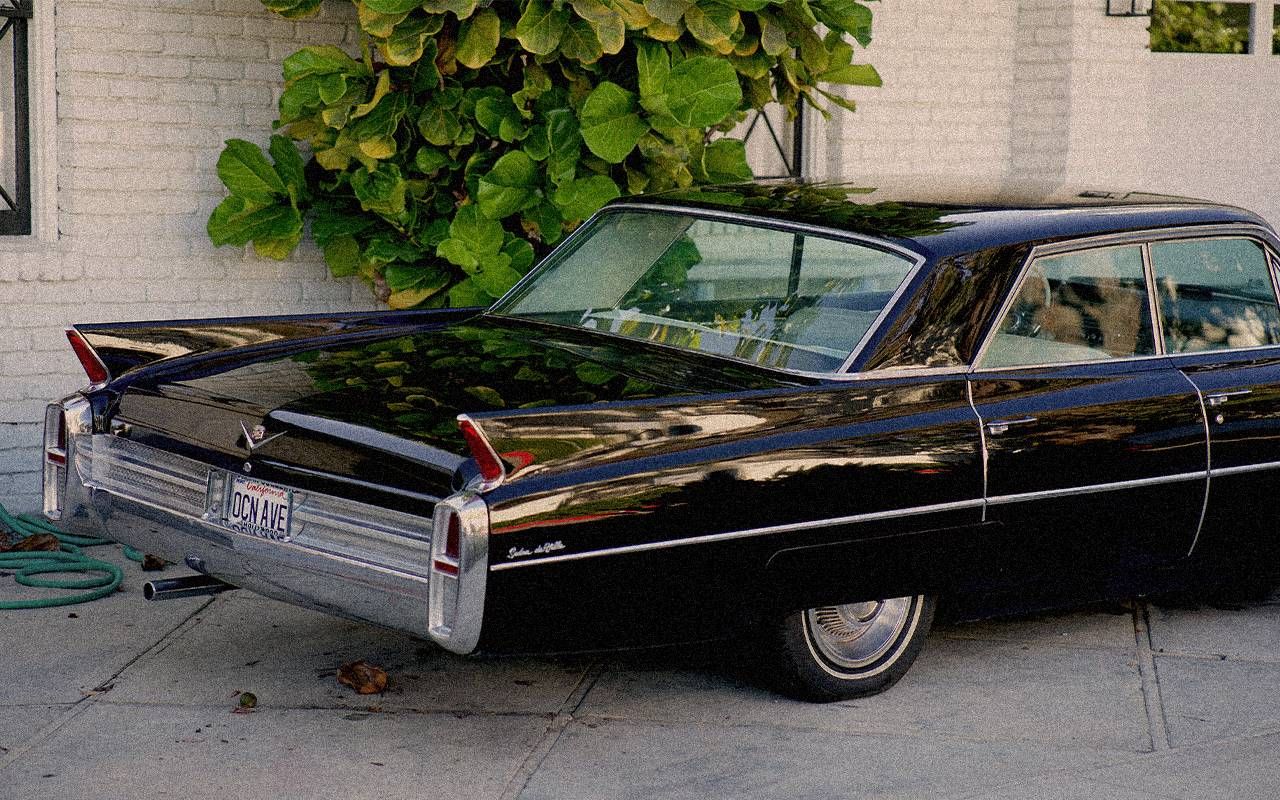A Poppa in Full
Memories of his own loving and attentive grandfather inspire this 'poppa'
You're in your den, looking out the window, you and your sister, your eyes peeled for Poppa. And then he pulls into the driveway in his chariot of a Cadillac, tail fins and all.
"He's here!" you squeal. "Poppa's here!'

Poppa huddles with your mother at the kitchen table for a while. But then comes playtime.
You're maybe 8 years old. Poppa visits your split-level colonial house in Fair Lawn, New Jersey, every Friday in late afternoon. It's a ritual that runs uninterrupted through the 1950s and 1960s, and still carries echoes in your family life today.
Benjamin Sheft drives in from Manhattan, where he lives and works, first to next-door Paterson, New Jersey. He stops at Spotless Cleaners, a client with about 200 dry-cleaning stores statewide, to go over the books in his role as a certified public accountant. Right after that, he drives over the Fair Lawn Avenue Bridge, across the Passaic River, to be with your mother and you and your sister.
Poppa huddles with your mother at the kitchen table for a while. But then comes playtime. He chases you and your sister around the first floor. Out into the foyer you go, over into the living room, through the dining room, and back into the kitchen. We follow a circuit, going around in circles again and again.
"I'm getting closer," Poppa says. "I'm gonna catch you."
Always on those Friday afternoons our Poppa is in the best of moods. He's done with his work for the week, no more books to balance, and now he's breaking loose with his two oldest grandchildren. He's giggling, too, issuing this silly tee-hee-hee, as if he's pretending to be a mischievous, naughty boy.
All through your boyhood, he called you "Bobby boy." "So how goes it, Bobby boy?"
As he runs after you both, Poppa adopts this funny move. He raises his hands to his face like paws, his arms sharply bent at the elbows, and he prances along, lifting his knees high in short, mincing steps, just like the mice at midnight in that dream sequence of "The Nutcracker." It always cracks you up.
The best grandfathers do the same as your Poppa. He took you to Yankee Stadium to watch the fourth game of the 1964 World Series because he knew baseball meant the world to you. He must have understood that every time you watched the Yankees together, everything that plagued you — your lousy grades in school, your lack of athletic excellence, your problems getting along with your parents — absolutely evaporated.
Poppa always looked and sounded glad to see you. "Hello, Bobby boy!" he would boom cheerfully. All through your boyhood, he called you "Bobby boy." "So how goes it, Bobby boy?"
He took you to his office, too, high in the Lincoln Building, right across from Grand Central Terminal, his desk facing south with a view of the Empire State Building. Later, he asked you how high school was going, and later still, after you graduated from college, how your search for a job was faring. You had a tough time finding your first adult job. It was 1975, and jobs were hard to come by as New York City came close to bankruptcy.
"I'd like to see you situated," Poppa would say, nodding with grave concern. He would lean back in his Eames chair, sipping his scotch on the rocks, his legs spreading and closing rapid fire, a nervous habit, still revved up from a day counting other people's money.
You could always count on his full attention, depend on him to look you in the eye and lend you an ear, and you never needed to court his affections. He asked after you, worried about you, doted on you. As an accountant, he saw it as his job to account for us all.
No wonder, after he died in 1981 at age 74, you wrote a letter to him in the form of a poem as a eulogy. No wonder you and your wife gave your son the middle name "Benjamin" in his honor. For years you kept a photo of him as a young man, his hair and mustache black, propped on a bureau in your living room, and wore the Swiss watch with gold trim that he wore and gave you. To this day you still wear the plaid woolen overcoat you inherited from him to keep you warm in winter.
You act so silly around four-year-old Lucia Antonia, born in Italy, that she calls you "Silly Nonno."
Now, more than half a century later, you are the Poppa. And, following his example, you, too, play games of pursuit and flight with your grandchild. You act so silly around four-year-old Lucia Antonia, born in Italy, that she calls you "Silly Nonno" ("Nonno" being grandfather in Italian).
No wonder you pay tribute to him every time you act silly chasing your ever-scampering Lucia. You're upholding an important tradition. You model yourself after him because as a grandfather he set the gold standard. Your ambition now is to be as much a Poppa to your grandkids as yours was to you.


